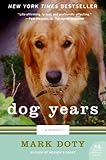 The Zookeeper’s Wife: A War Story
The Zookeeper’s Wife: A War Story
by Diane Ackerman
Get it from Amazon.
The Zookeeper’s Wife sounds rather grim on the surface: it’s about the keepers at the Warsaw Zoo hiding Jews during the holocaust. As the blurbs on the back say, it’s a rough subject to find in such a beautiful book, and yet, beautiful is what this story is.
Antonina and Jan live in a modern glass house inside the zoo. When the Nazis arrive in Poland, many of their animals are sent to German zoo’s, while others are slaughtered for sport, and yet, because one of the ranking officers is a zoologist, of sorts, the pair are allowed to remain in residence for most of the war, and eventually the zoo houses both a munitions station, and a fox farm.
At the same time, Jan and Antonina are smuggling Jewish people out of the ghetto, using their zoo as an initial stop on a sort of “underground railroad.” Some of these Guests are housed in the old aviary, in the rabbit house, in the pheasant house, and are referred to by the names of the animals whose cages they occupy. Others are hidden in closets, walls, tunnels, etc. around the the house, and still others move in, hiding in plain site.
Throughout this book, which reads like a novel though it is not fiction, even when things are at their worst, Antonina holds her strange family together, and a thread of hope runs through it all.
Goes well with: a bowl of hearty soup, artisan bread, and a cold gray day.


